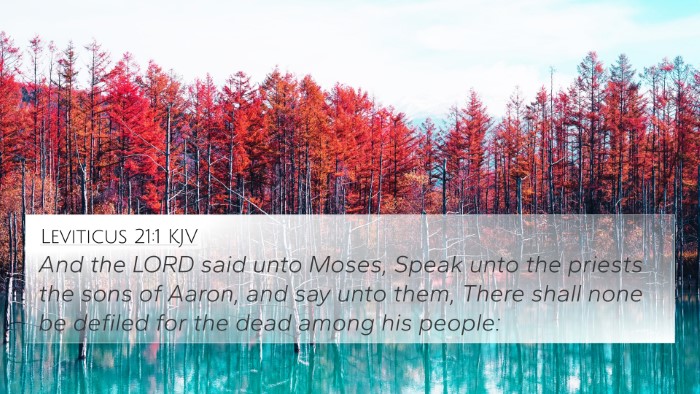Understanding Nehemiah 13:29
Nehemiah 13:29 states, "Remember them, O my God, because they have defiled the priesthood and the covenant of the priests and the Levites." This verse reflects Nehemiah's plea for divine justice against those who have violated sacred duties and the integrity of the covenant established with God's chosen servants.
Meaning and Context
This particular verse is situated within the narrative of Nehemiah's efforts to restore the spiritual and communal life of the Jewish people after their return from Babylonian exile. Nehemiah, a leader dedicated to the observance of God's laws, faces challenges from those who have not adhered to the covenant principles.
Insights from Public Domain Commentaries
- Matthew Henry: Henry emphasizes the seriousness of defiling the priesthood, noting that such actions lead to divine judgment. He explains that the integrity of the priesthood is crucial for the community's relationship with God and that Nehemiah's prayer is a call for God to remember and act against the transgressors.
- Albert Barnes: Barnes elaborates on the importance of the covenant for the priests and Levites, suggesting that these roles were vital for maintaining the religious order and community holiness. He highlights Nehemiah's righteous indignation and his urgent appeal to God for justice in light of these transgressions.
- Adam Clarke: Clarke discusses the implications of the term "defiled," noting that this extends beyond mere actions to encompass a spiritual corruption that affects the people. He interprets Nehemiah's plea as a passionate intercession, revealing how personal and national sins can invoke significant consequences.
Connections to Other Bible Verses
Nehemiah 13:29 resonates with numerous other biblical texts that illustrate the consequences of violating divine covenant and the sanctity of the priesthood.
- Malachi 2:8-9: Discusses the failure of priests to uphold God's covenant, just as Nehemiah confronts those who have defiled their calling.
- Ezra 10:10: Shows the implications of unfaithfulness in a community, connecting the themes of covenant fidelity and leadership responsibility.
- Leviticus 21:4: Details the holiness required of priests, highlighting the gravity of their defilement, which Nehemiah mourns in his prayer.
- Hebrews 5:1: Explores the exalted role of the priest, reaffirming that they are chosen to represent humanity before God—something that must not be taken lightly.
- Jeremiah 23:15: Discusses the shepherds of Israel leading people astray, paralleling Nehemiah's concern for proper leadership and holiness among the priests.
- Ezekiel 44:10-14: Portrays the consequences faced by those who have been unfaithful in their priestly duties, echoing Nehemiah’s mourning and call for remembrance.
- 1 Peter 2:9: Declares believers as a royal priesthood, reinforcing the enduring call to holiness and integrity among those who serve God.
- Romans 12:1: Aligns with the notion of presenting oneself as a living sacrifice, which reflects the commitment expected from priests and Levites in Nehemiah's day.
- James 4:4: Warns against friendship with the world, echoing Nehemiah's lament over those who had compromised their covenant relationship with God.
- Isaiah 58:1: Calls for the recognition of wrongdoing, akin to Nehemiah’s pronouncement of judgment upon those desecrating their covenants.
Thematic Connections
In interpreting Nehemiah 13:29 through a comparative lens, we can see themes emerge that are prevalent throughout Scripture:
- Integrity of Leadership: The verse highlights the paramount importance of ethical and spiritual integrity among those in positions of authority within the church.
- Divine Justice: Nehemiah's call for remembrance serves as a reminder that God is aware of injustice and will act accordingly.
- The Covenant Relationship: This theme connects the duties of priests and Levites with the overarching covenant that defines God's relationship with His people.
- Repentance and Restoration: The necessity for repentance is a recurring theme, emphasizing that understanding one’s failures is crucial for national and communal restoration.
Conclusion
Nehemiah 13:29 serves as a powerful reminder of the responsibilities held by spiritual leaders and the consequences of covenant unfaithfulness. It encourages readers to reflect on their roles within their communities and their relationship with God. By cross-referencing this verse with others, we can deepen our understanding of the importance of righteousness and integrity in spiritual service.











